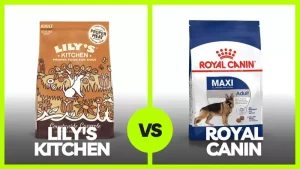As a new puppy parent, one of the most important decisions you’ll make is choosing the right food for your furry friend. With so many options on the market, it can be overwhelming. But fear not! We’re here to guide you through the process of finding the perfect puppy chow tailored to your breed’s specific needs.
Understanding Puppy Nutrition
Before we dive into the nitty-gritty of puppy food selection, let’s talk about why proper nutrition is so crucial for your pup’s development.
Building Blocks for Growth
Puppies are like little construction sites – they need the right building blocks (aka nutrients) to grow strong bones, muscles, and a healthy coat. Ensuring they get the right balance of protein, fats, carbohydrates, vitamins, and minerals is key to their overall well-being.
Fuel for Adventures: Don’t forget, puppies are bundles of energy! The right food will give them the fuel they need for all their playful adventures.
Breed-Specific Needs
Just like humans, different dog breeds have varying nutritional requirements. Factors like size, activity level, and predisposition to certain health conditions all play a role in determining the best puppy food for your furry pal.
Size Matters
One of the biggest considerations is your puppy’s expected adult size. Large and giant breed puppies have different growth rates and calcium needs compared to their smaller counterparts.
Big Pups: Large breed puppies need food formulated to support their slower growth rate and avoid orthopedic issues.
Tiny Tots: Small breed puppies, on the other hand, require nutrient-dense food to meet their high energy needs in a small package.
Breed-Specific Formulas
Many pet food companies now offer breed-specific formulas tailored to the unique needs of different breeds. These can be a great option if you have a purebred puppy.
Customized Nutrition: Breed-specific formulas take into account factors like jaw size, activity levels, and predispositions to certain health conditions.
Reading the Label
Once you’ve narrowed down your options based on breed and size, it’s time to dive into the ingredient list and nutrient profile. But don’t worry, we’ll break it down for you!
Protein Power
Puppies need high-quality protein to build and maintain their growing bodies. Look for puppy food with animal-based protein sources like chicken, lamb, or fish as the first ingredient.
Muscle Builders: Adequate protein is essential for developing strong muscles and a healthy immune system.
Fat Facts
Fats are an important source of energy and essential fatty acids for your pup. However, too much fat can lead to weight issues, so aim for a moderate amount from animal-based sources.
Energy Boosters: Healthy fats provide the energy your puppy needs for playtime and growth.
Carb Considerations
While carbohydrates are not a primary energy source for dogs, they do provide fiber and essential nutrients. Look for whole grains, vegetables, and fruits on the ingredient list.
Fiber Friends: Carbs with fiber help support a healthy digestive system in your growing pup.
Avoid Fillers: Steer clear of puppy foods with high amounts of corn, wheat, or soy – these are often used as cheap fillers.
Transitioning to New Food
Switching to a new puppy food should be done gradually to avoid digestive upset. Here’s how to make the transition smooth for your pup.
The Slow and Steady Method
Over the course of a week, gradually mix in the new food with the old, increasing the ratio of new to old each day.
Day 1: 25% new food, 75% old food
Day 4: 50% new food, 50% old food
Day 7: 100% new food
Monitoring for Tummy Troubles
During the transition period, keep an eye out for any signs of digestive distress, such as vomiting or diarrhea. If you notice any issues, slow down the transition or consult your veterinarian.
Tummy Tip: Adding a probiotic supplement can help support your pup’s digestive system during the change.
Feeding Schedule and Portions
Getting the right amount of food is just as important as choosing the right type of food. Over or underfeeding can lead to health issues down the road.
Age-Based Portions
Puppies have different caloric needs as they grow, so it’s important to follow the feeding guidelines on the puppy food label based on your pup’s age and expected adult weight.
Growing Appetites: As your puppy grows, you’ll need to adjust their portions accordingly. Don’t be afraid to ask your vet for guidance!
Meal Frequency
Most puppies do best with three to four smaller meals per day, rather than one or two large meals. This helps prevent overloading their little tummies and supports consistent growth.
Snack Time: You can also offer small, healthy treats during training sessions or playtime.
When to Switch to Adult Food
Knowing when to transition your pup from puppy food to adult food is essential for their long-term health.
The 12-Month Mark
Most dogs can make the switch to an adult maintenance formula around 12 months of age, or when they reach their expected adult weight and size.
Size Matters (Again): Large and giant breed dogs may need to stay on puppy food a bit longer, up to 18-24 months, to support their extended growth period.
Spayed or Neutered?
If your dog is spayed or neutered before reaching their full growth potential, you may need to switch to an adult food a little earlier to prevent excess weight gain.
Hormonal Changes: Spaying or neutering can affect your dog’s metabolism and energy needs, so consult your vet for guidance.
Conclusion
Choosing the right puppy food is a crucial investment in your furry friend’s health and happiness.
By understanding your breed’s specific needs, reading labels, and following feeding guidelines, you’ll be setting your pup up for a lifetime of adventures and tail-wagging joy.
Remember, a well-nourished puppy is a happy puppy!
FAQs
Q1: Can I feed my puppy homemade food instead of commercial puppy food?
A: While homemade diets can be nutritionally balanced, it’s challenging to ensure your puppy is getting all the necessary nutrients in the right proportions. Commercial puppy foods are formulated specifically for your pup’s growth needs, making them a safer and more convenient option.
Q2: How do I know if my puppy is getting enough water?
A: Puppies need access to fresh, clean water at all times. A general rule of thumb is that they should drink about an ounce of water per pound of body weight per day. Watch for signs of dehydration, like dry gums or lethargy, and consult your vet if you’re concerned.
Q3: Can I give my puppy supplements or human food?
A: It’s best to avoid giving your puppy supplements or human food unless recommended by your veterinarian. Many human foods can be harmful to dogs, and supplements may interfere with the balanced nutrition in their puppy food.
Q4: How often should I switch puppy food brands or formulas?
A: As long as your puppy is doing well on their current food, there’s no need to switch brands or formulas frequently. Consistency is key for their digestive health. However, you may need to transition to a different formula as your pup grows and their nutritional needs change.
Q5: What if my puppy is a picky eater?
A: Some puppies can be fussy about their food. Try mixing in a little warm water or low-sodium broth to enhance the aroma and flavor




